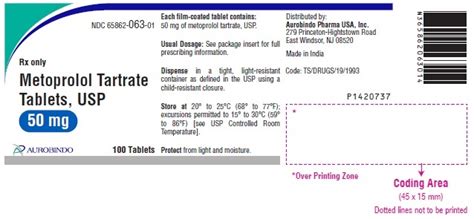Intro
Discover Metoprolol medication uses, benefits, and side effects. Learn about its role in treating hypertension, angina, and heart failure, and understand dosage instructions, interactions, and precautions for this beta-blocker medication.
Metoprolol is a medication that has been widely used for decades to treat various cardiovascular conditions. It belongs to a class of drugs known as beta blockers, which work by slowing the heart rate and reducing blood pressure. This makes it an effective treatment for conditions such as high blood pressure, chest pain, and certain heart-related issues. The importance of metoprolol lies in its ability to improve the quality of life for individuals with these conditions, allowing them to manage their symptoms and reduce the risk of complications.
The use of metoprolol has become increasingly common due to its efficacy and safety profile. It is often prescribed to patients who have experienced a heart attack, as it can help to reduce the risk of another attack occurring. Additionally, metoprolol is used to treat conditions such as angina, which is characterized by chest pain or discomfort. By reducing the heart rate and blood pressure, metoprolol can help to alleviate symptoms and improve overall cardiovascular health. As a result, it is essential to understand the uses, benefits, and potential side effects of metoprolol to ensure that patients are using it effectively and safely.
The mechanism of action of metoprolol is complex, involving the blocking of beta receptors in the heart and blood vessels. This leads to a decrease in heart rate, blood pressure, and cardiac output, which can help to reduce the workload on the heart. As a result, metoprolol is often used to treat conditions such as hypertension, which is a major risk factor for cardiovascular disease. By controlling blood pressure, metoprolol can help to reduce the risk of complications such as heart failure, stroke, and kidney disease. Furthermore, metoprolol has been shown to improve survival rates in patients with heart failure, making it a crucial medication for individuals with this condition.
What is Metoprolol Used For?

Benefits of Metoprolol
The benefits of metoprolol are numerous, making it a popular medication for the treatment of cardiovascular conditions. Some of the benefits of metoprolol include: * Reduced risk of heart attack and stroke * Improved survival rates in patients with heart failure * Alleviation of symptoms such as chest pain and shortness of breath * Reduced blood pressure and heart rate * Improved overall cardiovascular healthHow Does Metoprolol Work?

Side Effects of Metoprolol
While metoprolol is generally well-tolerated, it can cause side effects in some individuals. Some of the common side effects of metoprolol include: * Fatigue * Dizziness * Lightheadedness * Shortness of breath * Nausea and vomiting * Diarrhea or constipationMetoprolol Dosage and Administration

Interactions with Other Medications
Metoprolol can interact with other medications, including: * Other beta blockers * Calcium channel blockers * Anti-arrhythmic medications * Anti-depressant medications * Anti-anxiety medicationsPrecautions and Warnings

Pregnancy and Breastfeeding
Metoprolol can be used during pregnancy, but it is essential to discuss the risks and benefits with your doctor. Additionally, metoprolol can pass into breast milk, which can affect the baby. It is essential to discuss any concerns or questions you have with your doctor before taking metoprolol while breastfeeding.Conclusion and Final Thoughts

We invite you to share your thoughts and experiences with metoprolol in the comments below. Have you taken metoprolol for a cardiovascular condition? What were your experiences with the medication? Share your story and help others understand the benefits and potential risks of metoprolol.
What is metoprolol used for?
+Metoprolol is used to treat various cardiovascular conditions, including high blood pressure, chest pain, and heart failure.
What are the benefits of metoprolol?
+The benefits of metoprolol include reduced risk of heart attack and stroke, improved survival rates in patients with heart failure, and alleviation of symptoms such as chest pain and shortness of breath.
What are the potential side effects of metoprolol?
+The potential side effects of metoprolol include fatigue, dizziness, lightheadedness, shortness of breath, nausea and vomiting, and diarrhea or constipation.
Can metoprolol be used during pregnancy and breastfeeding?
+Metoprolol can be used during pregnancy, but it is essential to discuss the risks and benefits with your doctor. Additionally, metoprolol can pass into breast milk, which can affect the baby.
How does metoprolol interact with other medications?
+Metoprolol can interact with other medications, including other beta blockers, calcium channel blockers, anti-arrhythmic medications, anti-depressant medications, and anti-anxiety medications.
